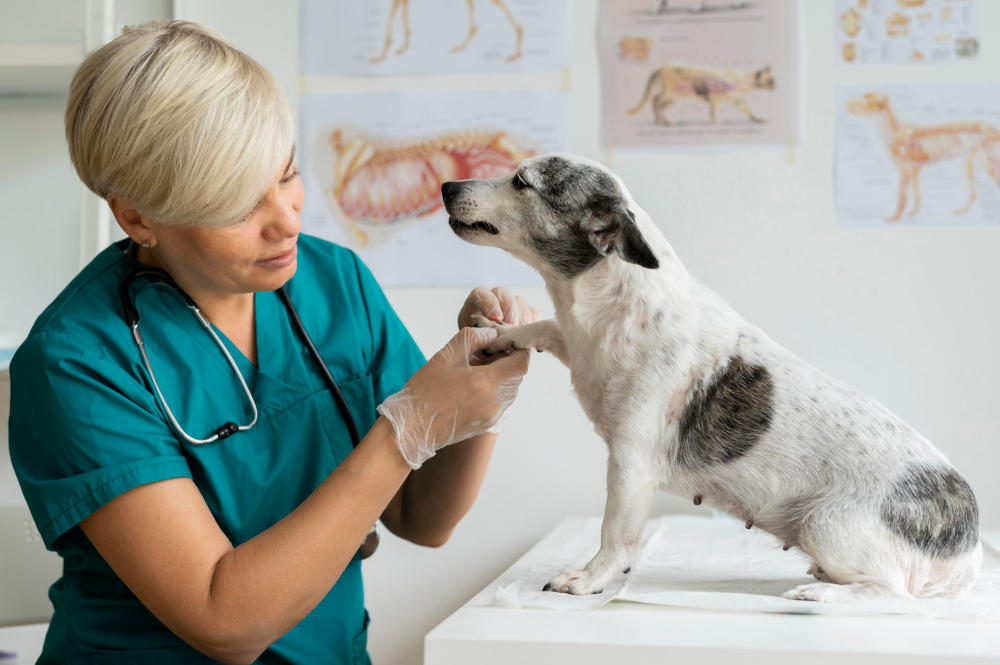Best Practices for the Care of Your Senior Pet

Best Practices for the Care of Your Senior Pet

Senior pet care is a special chapter in the life of any pet owner. Whether you’ve witnessed your furry friend cross the years into their golden era or are poised to guide them through this stage, the responsibility shifts from being the caregiver of a sprightly creature to that of a companion sensitive to the needs of a wise, aging soul. A critical aspect of senior pet care is regular veterinary visits. But how often should you be taking your aging pet to the vet? Is it really all that different from the schedule you had with them at a younger age? In this comprehensive exploration, we’ll break down the medical milestones and tips for ensuring your senior pet’s health and happiness.
Understanding Senior Pet Healthcare
The aging process affects pets much as it does people. Internal organs begin to function less efficiently, senses may decline, and mobility issues can become more prevalent. This means a proactive and attentive approach to healthcare is critical in ensuring the best possible quality of life for your senior pet.
When Is a Pet Considered 'Senior'?
The age at which a pet is considered 'senior' varies depending on species and size. Cats and smaller dogs tend to enter their senior years around the age of 7, while larger breed dogs are considered senior by 5-6 years. Once considered a senior, you should anticipate healthcare needs to change and likely increase in frequency.
Signs of Aging to Look For
Be vigilant of the following signs, which can indicate that your pet is entering their senior years:
- Changes in appetite and weight
- Increase in water consumption or urination
- Changes in behavior or activity level
- Dental problems
- Skin and coat changes
- Mobility issues
- Vision and hearing loss
- Cognitive dysfunction
Crafting a Pet-Specific Care Plan
Just as our healthcare needs can change with age, a unique care plan should be designed for your senior pet, taking into account their individual health history, breed, and known medical predispositions.
Discussing Chronic Conditions
Senior pets are more prone to chronic conditions such as diabetes, heart disease, arthritis, and cancer. During an annual senior pet visit, discuss your pet's risk factors and monitor the development of any conditions they may be predisposed to.
Nutrition is Key
The right nutrition can vastly improve your senior pet's health and energy levels. Discuss with your vet which diet plan and supplements are suitable for your aging pet's needs, and make adjustments as necessary.
Exercise Adapts, Never Ends
While a senior pet may not have the same exercise capacity as a younger one, staying active is crucial to maintaining mobility and a healthy weight. Tailor exercise activities to your pet's current health status.
Navigating Vet Visits: How Often Is Enough?
Veterinary visits are a crucial aspect of preventive medicine for pets, acting as checkpoints to catch and manage issues before they become severe.
The Annual Wellness Visit
An annual wellness visit for your senior pet should be non-negotiable. During this visit, your vet will perform a full exam and may recommend bloodwork to assess your pet's internal health.
Maintaining Dental Health
Oral health often goes overlooked, but it's a significant factor in the overall health of your pet, particularly when it comes to senior pets. Your vet can help craft a dental care plan, which may include regular cleanings and special dental diets or treats.
Staying Up-to-date on Vaccinations
Vaccinations don’t stop being important just because your pet is no longer a puppy or kitten. Many vaccines need to be refreshed, and annual visits are an excellent time to ensure your pet is protected.
Personalized Senior Pet Care Considerations
The transition to senior pet care isn’t just a matter of increasing frequency at the vet’s office; it's about customizing the care to fit your pet's specific needs and comfort levels.
Minimizing Stress at the Vet
Vet visits can be stressful for pets, and this effect can be compounded in senior pets. Practices that specialize in senior pet care often take measures to reduce stress, such as quiet waiting areas and soft lighting.
What to Expect During a Senior Wellness Exam
Wellness exams for seniors are more in-depth and may include diagnostic screenings like X-rays, blood pressure measurements, and other tests your vet deems necessary based on your pet’s age and condition.
The Role of Bloodwork
Bloodwork at each checkup gives a comprehensive look into your pet's health. It can identify problems with organs, hormone levels, and more that might not be apparent through a physical exam.
Special Situations: When to Visit the Vet Between Appointments
Not all health issues arise conveniently close to your annual vet visit. Here’s what to look out for and when you should make a special trip to the clinic.
Acute Injuries and Emergencies
If your senior pet experiences a sudden health issue like a fall or a seizure, it’s essential to seek veterinary care immediately.
Managing Chronic Conditions
If your senior pet has chronic health issues, keep an eye out for changes in symptoms, energy levels, and pain, which could indicate a need to visit the vet.
Addressing Changes in Behavior
Your pet’s behavior is a window into their health. If they start to show unusual behavior patterns, it’s worth consulting your vet to rule out health concerns.
Investing in Home Healthcare for Your Senior Pet
In some cases, especially for particularly frail or anxious pets, in-home healthcare may be the best solution.
The Benefits of In-Home Veterinary Care
In-home care services can reduce stress for pets and allow vets to see the pet's environment, offering more tailored advice.
Customizing Medical Care at Home
In-home care is ideal for administering medications, monitoring pets during recovery, and providing euthanasia services, offering a peaceful and familiar setting.
When In-Home Services are Appropriate
For routine care, regular veterinary visits are typically more comprehensive. In-home services are best for situations where a visit to the clinic would cause undue stress.
Final Thoughts on Senior Pet Care
The aging process may be inevitable, but how we approach it is within our control. Dedicate regular time to assessing and addressing your senior pet's needs. By doing so, you can ensure that their twilight years are full of comfort, love, and the quality care they deserve.
Pet ownership is a deeply rewarding experience, and accompanying a pet through their golden years is an opportunity to deepen the bond and express the love that they’ve lavished on you throughout their lifetime. Your proactive role in your pet's health is a testament to your compassion and commitment as a pet parent, and in seniors especially, it speaks volumes of your love for them.
For those considering in-home euthanasia services in Jupiter, FL, Rover Veterinary Care provides compassionate and professional vet care that centers on your pet's comfort and your peace of mind. Make their final moments as stress-free as their lifelong companionship has been joyful. Contact our team for more information on how to ensure your pet’s transition is surrounded by love and familiarity.
